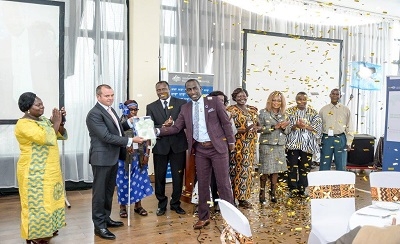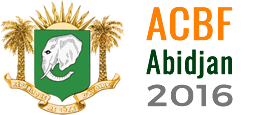News
More than 2.3 million people in Africa receive the Australian program supported by ACBF- Posted 21-05-2016
 More than 2.3 million women and marginalized people in 11 African countries have benefited from food security projects, maternal and child health, water, sanitation and hygiene in the Australian program Community Action in Africa (AACES). The program will end on 30 June 2016.
More than 2.3 million women and marginalized people in 11 African countries have benefited from food security projects, maternal and child health, water, sanitation and hygiene in the Australian program Community Action in Africa (AACES). The program will end on 30 June 2016. The AACES is a five-year partnership between the Australian Government, 10 Australian NGOs and their partner organizations in Africa. The program was implemented in Ethiopia, Ghana, Kenya, Malawi, Mozambique, Rwanda, South Africa, Tanzania, Uganda, Zambia and Zimbabwe.
The Foundation for Capacity Building in Africa (ACBF) supported the AACES as resource funds. The role of the ACBF in this respect was to provide logistical, administrative and technical fast, effective, and efficient to AACES. In this regard, the Resource Fund supported the communication, coordination and management AACES.
From 2011 to June 2016, 83 million Australian dollars (61 million US $) were intended for interventions in communities with a focus on achieving change for women, youth, children and the disabled. Good results have been produced over the years for maternal and child health, agricultural productivity, water and sanitation.
More than 2,378,468 people have benefited directly from the AACES, of which 1,491,231 were women and girls. It is estimated that 479,413 people visited maternal and child health services, about 817,933 people have seen improvements in agricultural productivity and more than 1,074,813 people received water and sanitation services.
"A strong and clear focus on sustainability, gender equality and women's empowerment are the basis of the model of AACES. The added value of the program will be sustainable outcomes, evidence of positive impacts lives changed and will continue long after the AACES "says Matthew Neuhaus, Deputy Secretary of the Africa Division and Middle East at the Ministry of Affairs Foreign and Trade (DFAT).
He added: "The AACES brought together Australian and African. The program strengthened and given hope to marginalized groups. Communities have become more inclusive as they realize the role that each individual can play. Local governments have become more responsible as communities acquired a better understanding of their rights and forced the officers to keep their promises. NGOs and donors now appreciate the power of collaboration and partnership to influence and have an impact on development results. The AACES demonstrated that everyone has and can play a positive role in the communities. This was the key strong results supported and brighter prospects for most communities in AACES. "
DFAT has sought to work with NGOs to benefit from their experience in working with poor and marginalized people in Africa. The program was characterized by a partnership approach in order to maximize the effective working relationship between DFAT and NGOs. The partnership has led to innovative thinking, sharing ideas between African and Australian NGOs and new approaches to cooperation.
The program was successful in achieving its objectives. He produced results that exceeded its targets and initial expectations. The data show a considerable change in the beneficiary countries of AACES project in access to services, resulting in measurable changes in the health and welfare of women, children, young people and others in the community .
AACES the program's closing ceremony and the launch of its final review report took place at the Hotel Royal Orchid Azure Nairobi (Kenya) May 25, 2016.
According to Dr. Roger Atindehou, who represented the Executive Secretary of ACBF to the event: "ACBF is very proud of the achievements of AACES that have been clearly illustrated in the final review report. Since January 2012, we were part of the course of AACES as manager of resource funds. Although our role was that of an entrepreneur, we became very quickly the partnership of AACES, which is celebrated in this report. "
The final review report of AACES is available on the DFAT website: www.dfat.gov.au
Follow us on twitter
Tweets sur #acbfabj16Copyright 2016 African Capacity Building Foundation | All rights reserved
Conception 


